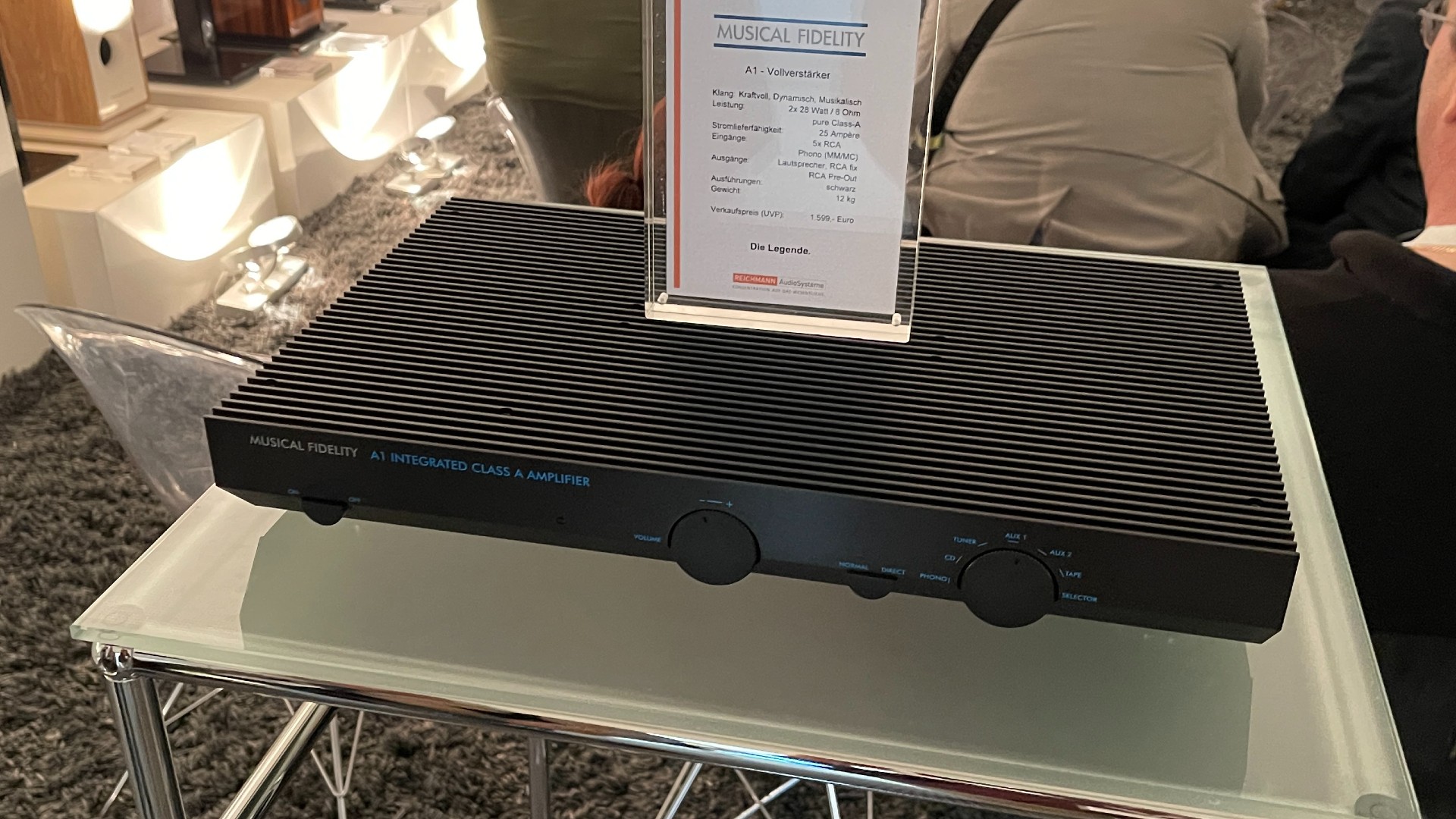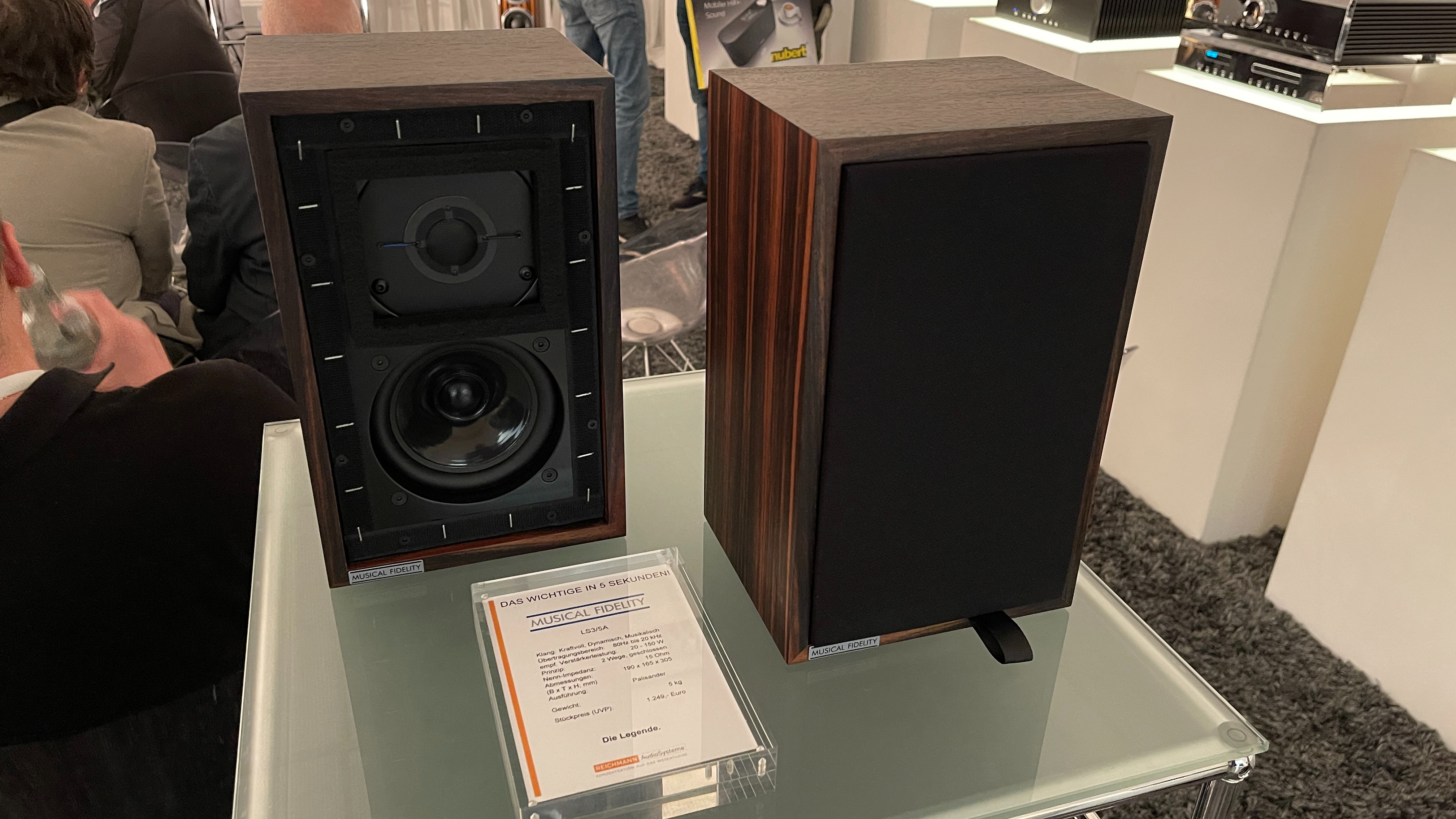
I am standing at the back of Musical Fidelity's packed demo room at this year's High End Munich show and there is palpable excitement in the air. The brand's owner, Heinz Lichtenegger (of Pro-Ject turntable fame), is about to tell us all about the company's latest integrated amplifier, the A1.
Only it isn't really new. This fresh offering is a faithful remake of a design that helped to establish the Musical Fidelity brand as a real force in the market and the maker of some startlingly daring designs.
What I'm looking at isn't identical to the 1985 original, but it is close enough for me to need both generations side by side to spot the differences. Do so and you would notice the 2023 version is a little bigger and includes vents in the casework to manage heat flow.
Putting the original's charismatic sound aside, the conversation always turns to heat when talking about this iconic product. That heat is a direct consequence of what has always made this amplifier stand apart from the competition: Class A operation.
Class A is, in theory, the optimum way to get the best sound quality from transistor circuits. However, the problem is that such designs always run hot. Musical Fidelity's solution was to turn the A1's casework into a giant heatsink, and it worked to a certain extent. Even so, it is fair to say that the original amplifier still skirted on the edge of acceptability when it came to heat output.
It's not 1985 anymore, so the increase in case size (to dissipate more heat) and added ventilation (ditto) were essential. The claims are that the casework temperature has now dropped by a few degrees, which keeps the new A1 on the right side of acceptability and the law. Either way, whether we're talking about the original or the 2023 remake, this is an amplifier that needs plenty of ventilation. Housing an A1 in a closed cupboard is an absolute no-no.
The reincarnated version feels nicely made and the switches and control dials have a pleasant precision to them. It has a remote, unlike the hands-on original, but this only adjusts the volume level.

The amplifier's power output is broadly unchanged at a claimed 28 watts per channel, so it makes sense to take care with speaker matching. Our demonstration was done with Musical Fidelity's new BBC-inspired LS3/5A design. This speaker's nominal impedance of 15 ohms means that it doesn't require much current, and that suits the new A1 perfectly.
How does the new A1 sound? It is hard to make any firm judgement in a show environment, but the first impressions are certainly positive. I hear a bold and full-bodied sound; one that's richer, smoother and more easy-going than is typically the fashion today. The demo room was massive and packed with people, so it isn't fair to talk about dynamics, detail levels or rhythmic drive. Even so, the listening experience leaves me wanting to hear more and eager to try the little amplifier in the more familiar surroundings of our listening room (we have a review sample coming soon).
At a suggested retail price of €1599, and a likely UK price below £1500, the new Musical Fidelity A1 is certainly a tempting proposition. The original used to be considered a budget amplifier back in the '80s, but that is no longer the case with this latest version. How much does that matter? Once again, more time is needed with the product before that can be decided. Regardless, it is still clear that this new A1 offers a chance to experience a lovely piece of hi-fi history. What value do you put on that?
MORE:
Naim resurrected its iconic Nait 1 in the form of the limited edition Nait 50
Musical Fidelity unveils two new loudspeakers based on the BBC’s original designs
Here's all the news and highlights from High End Munich 2023 show







